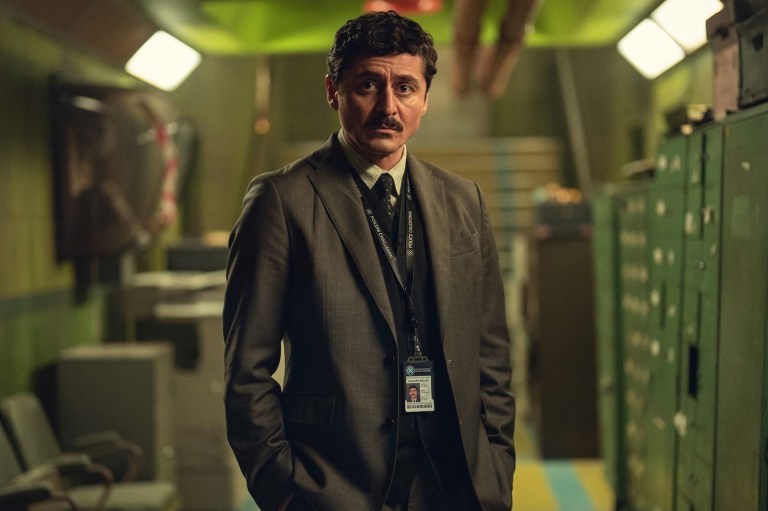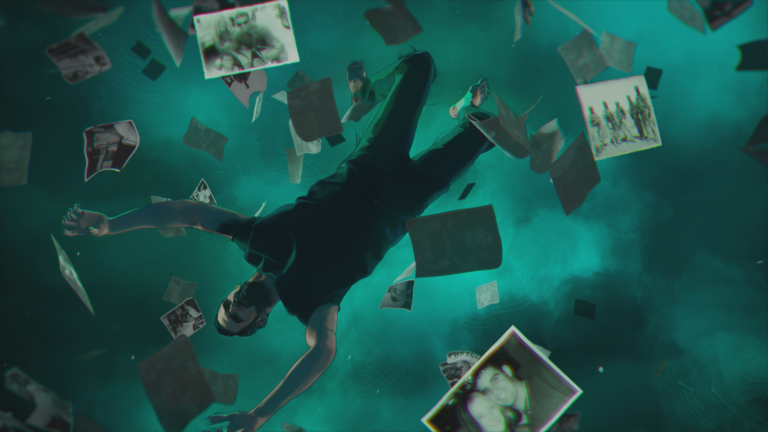
This Is What You Need to Understand About Relationship PTSD (Because Yes, It’s Real)
There is a huge difference between amicably ending an incompatible relationship and freeing yourself from the clutches of a toxic or abusive person. If you begin to recognize symptoms of PTSD, seek help. You deserve to be whole.
By ![]() Tony Massey
Tony Massey
You’re free. The toxic relationship you’ve felt trapped in for so long is finally over. You’ve methodically scrubbed your life to remove all traces and memories of your ex. You’ve vowed to focus on healing and moving forward. As time passes, you’ve successfully renovated the chaotic spaces he created in your heart and mind into sanctuaries of peace and tranquility.
Then you began to notice a shift. Your calmness and joy are frequently interrupted by strange sensations of fear and grief. Without explanation or warning, at times you find yourself overwhelmed with anxiety. Certain songs, movies, thoughts, or locations trigger what feels like a rebellious revolt by your emotions. Your brain leads the mutiny and convinces your body that you are once again trapped in the inescapable prison of your previous abusive relationship. Despite your passionate attempts at convincing your brain that the relationship is over, you begin to physically and emotionally experience the agony of the most painful moments of your past.
I know you’re confused. I know you’re wondering what the hell is going on. As a combat veteran, I think I can explain what you are experiencing. Like me, you are suffering from post-traumatic stress disorder or PTSD. Before you dismiss my unofficial diagnosis, allow me to briefly share my story and illustrate the similarities between your life after your break up and my life after combat.
In the fall of 2006, I attempted suicide. I was on active duty in the US Navy and had recently returned from my second combat tour in the Middle East. I emptied a bottle of cyclobenzaprine and a bottle of oxycodone on my coffee table in my home in Camp Pendleton, California. I counted 52 pills in all. I scooped them up and chased three handfuls down my throat with a cold beer. As the pills made their way to my stomach, I rested my head against my living room wall and whispered a short prayer. I prayed that God would forgive me for committing the ultimate sin. I also asked Him to watch over my then 10-year old son. I wasn’t afraid to die and I didn’t experience regret. I was settled with the idea that I would no longer have to face the vivid nightmares that haunted me or be forced to deal with my perpetual grief.
I don’t remember dreaming that night, but I do remember the sun abruptly appearing through my window. I immediately experienced two emotions when I opened my eyes – disappointment and fear. As an inpatient on the psychiatric ward at a military hospital in San Diego, California, I was diagnosed with combat-related post-traumatic stress disorder, discharged, and eventually sent back to my unit. In the summer of 2008, I was honorably discharged from the Navy and it would be another eight years before I received any mental health treatment.
Over the years I’ve learned to cope. I’ve developed the following elaborate rules for myself to prevent intense, emotional episodes that are difficult to control:
When I enter a crowded room, I immediately identify all possible egress points. If egress is limited or difficult, I leave.
I rarely make eye contact unless I’m speaking directly to someone.
I NEVER sit with my back to a door or an accessible window.
I try to never allow myself to get angry; if it is unavoidable I quickly walk away. Once I reach a certain level of rage, it is almost impossible for me to come down.
I have a drink (or several) before I go to sleep to make the nightmares less vivid.
I don’t go to fireworks shows and I take a sleeping pill to avoid the sounds of local kids popping firecrackers.
The goal has been survival through avoidance. My fight or flight response, activated when I am faced with a stressful or frightening situation, no longer has an off switch. The mere perception of a threat shoves my brain right back into a combat situation and it demands my body acts accordingly. I have to literally tell my brain that everything is okay and we are not in danger. I have to convince my brain that the threat doesn’t exist, otherwise it will release an onslaught of hormones, flooding my body with epinephrine, norepinephrine, cortisol, dopamine, and serotonin. Every blood vessel in my body will dilate and my heart will be sent into a dangerous overdrive. My bladder will empty and my digestion will slow to a halt. My muscles will tense until they involuntarily spasm and my pupils will dilate to their full circumference. My body will be optimized for an arduous battle, even though no threat actually exists.
Relationship PTSD or post-traumatic relationship syndrome (PTRS) is very real. The violent emotional swings caused by a toxic relationship are psychologically equivalent to what service members experience in combat. For days or sometimes weeks, we sit in absolute boredom in the field and suddenly, all out mayhem ensues and we find ourselves lost in the fog of war. When the battle ends, we return to a state of temporary peace and prepare to do it all over again.
The peaceful times between arguments or tantrums may feel reassuring, however, you know that some issue or misunderstanding will summon more emotional or physical abuse. What my enemy did with gunfire, the toxic person does with manipulation, deception, and rage. Despite being armed, I can relate to the feelings of confusion and helplessness. I understand the desperate desire to end the turmoil. I also understand how easy it is to be comforted by chaos and seduced by havoc.
Walking away from the relationship, like leaving a combat zone, is more difficult than one would think. There’s a perverse sense of obligation and hope that keeps you tethered to an environment that is slowly devouring you. When you finally depart, the celebration is short-lived because you now have to face an often confusing and dichotomous reality.
Much like a combat veteran, you will have to learn your triggers. You will need to determine which situations and environments send your brain time-traveling back through your painful past. At first, you may be tempted to try isolation as a coping method. As effective as isolation may feel, it has the unintended consequence of allowing your subconscious to run wild and unchecked. Your mind is a war-torn battlefield and your thoughts are negatively influenced by your pain. You can no longer be trusted as your sole adviser. Without a voice of reason, you will begin to anesthetize your feelings and disconnect from your humanity. You need trusted people in your life to help bring you back to center when paranoia causes your brain to overreact to benign stimulus.
The saying, “time heals all wounds” is true in theory; however, time can definitely benefit from the assistance of therapy. Undergoing cognitive behavior therapy to treat my symptoms of PTSD has been life-changing for me. I still struggle in certain situations and environments, like large crowds and thunderstorms, but I am able to talk myself down quicker than I could before therapy.
Ending an abusive or toxic relationship should be immediately followed by some form of therapy. You have to learn how to recognize the difference between reality and perception. You need safe, effective coping mechanisms that foster healing, not just avoidance. You need to fully discover how your traumatic experiences have impacted your thoughts, feelings, and behavior.
Therapy will reintroduce you to the person you were before the trauma. Therapy allows you the opportunity to safely rummage through your memories and effectively deal with the ones that are causing the most damage. Talking to friends and family is great; however, therapy provides a systematic approach for you to regain control and reestablish sustained peace. Therapy will help you to identify warning signs of an abusive person, so that you can avoid potentially toxic relationships in the future. Most of all, therapy will allow you to live in the present without feeling restrained by your past.
I AM FINE
No, you aren’t. If you haven’t dealt with the trauma of an abusive relationship, not only are you not fine, you have the potential to become the assailant. I’m sure you’ve heard the saying, “hurt people, hurt people.” It’s true. When pain becomes familiar and comfortable, a subconscious campaign is launched that causes you to surround yourself with pain, even if you have to cause it.
The difficulty of PTSD is that your fears and reactions don’t feel justified because your response to a current situation is based on your experiences from a significantly more traumatic past event. It is extremely difficult to answer the question, “why are you crying?” when you honestly don’t know the answer. When you do finally realize that memories are causing your sadness, you become immersed in shame because of your inability to “get over it”.
YOU WILL BE FINE AND YOU ARE NOT ALONE
You aren’t required to have experienced heavy gunfire during a combat engagement to suffer from PTSD. Any exposure to prolonged trauma can cause a dramatic shift in how you respond to a perceived threat. The term traumatic is subjective and there is no objective measurement for pain or grief. Your misery does not need to be quantified or qualified by anyone. PTSD is not about the trauma, it is about your mind and body’s response to the trauma. Don’t allow anyone to dismiss your feelings because it doesn’t meet their subjective criteria for what is or is not significant.
There is a huge difference between amicably ending an incompatible relationship and freeing yourself from the clutches of a toxic or abusive person. If you begin to recognize symptoms of PTSD, seek help. You deserve to be whole.
Now that you’ve survived the trauma of a toxic relationship, it’s time to thrive and live a life unburdened by the past. You don’t have to live in fear and you should reject any temporary comfort that pain or chaos may offer. You may feel broken, but you are not destroyed. The love you desire and still believe exists is out there searching for you. You owe it to yourself to ensure that you are emotionally and mentally able to remain blissfully in the moment when love finds you.











